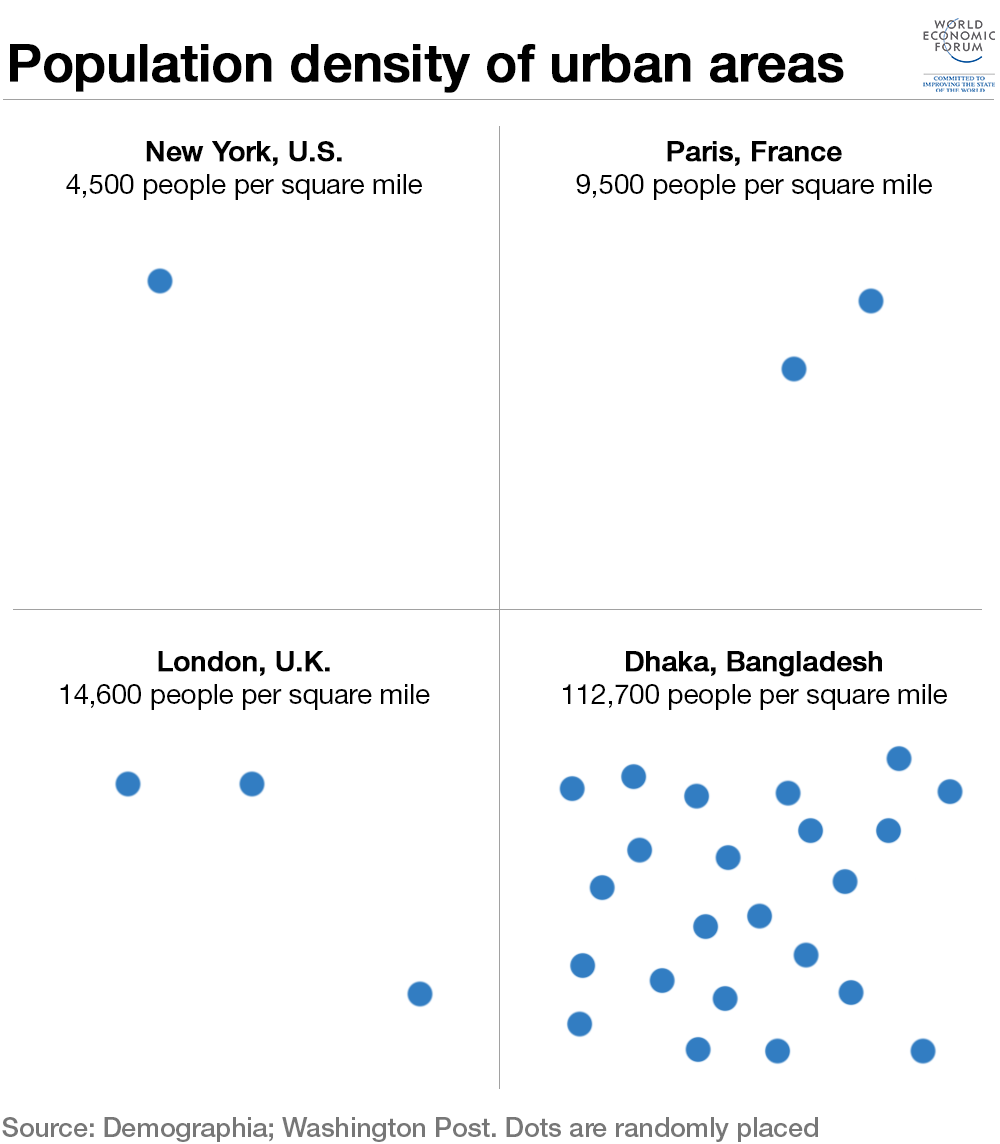Which are the world’s most crowded cities?

Stay up to date:
Infrastructure
Is your city too full? Are you struggling to squeeze on the bus every morning or wasting precious hours snarled up in traffic? Your senses could be deceiving you, according to some new data.
Despite giving the impression that they’re filled to bursting point with human traffic, several cities actually have an enormous amount of space. Take New York, for example: who would guess that a metropolis so teeming with life in fact only houses 4,500 people per square mile? That makes its population 25 times smaller than that of Dhaka in Bangladesh, or half the size of Paris.
This chart shows how cities around the world compare. New York has the fewest people per square mile, indicative of the low population density of urban America compared with the rest of the industrialized world. Dhaka, on the other hand, has 112,700.
Overcrowding on pavements, subways, schools may seem a tangible problem, but in fact there is no way to define whether a block, neighbourhood or district has reached physical capacity. The concept of “full” is itself a fluid one: it’s really about the choices that residents and town planners are prepared to make.
Wonkblog’s Emily Badger writes: “Cities, in particular, are about trade-offs between hectic streets and vibrant economies, between scarce parking and neighbourhoods worth travelling to, between cramped subway cars and the mass of humanity that makes the subway possible.”
Click here to read more of Badger’s blog, where you’ll also find an interactive that allows you to compare your city to others around the world.
Have you read?
Which cities will contribute most to global growth?
These cities have grown the most since 1955
Where are the top 5 most liveable cities?
Author: Anna Bruce-Lockhart is an editor at the World Economic Forum
Image: People flock over the Brooklyn Bridge during a massive power outage in New York on August 14, 2003. REUTERS/Shannon Stapleton
This article has been amended. In an earlier version the chart placed Dhaka in India, rather than Bangladesh.
Don't miss any update on this topic
Create a free account and access your personalized content collection with our latest publications and analyses.
License and Republishing
World Economic Forum articles may be republished in accordance with the Creative Commons Attribution-NonCommercial-NoDerivatives 4.0 International Public License, and in accordance with our Terms of Use.
The views expressed in this article are those of the author alone and not the World Economic Forum.
Forum Stories newsletter
Bringing you weekly curated insights and analysis on the global issues that matter.
More on Youth PerspectivesSee all
Benedikt Gieger and Mario Truss
February 18, 2025
Julie Linn Teigland
January 23, 2025
Janet Truncale
January 17, 2025
Mark Edward Rose
January 14, 2025
Natalie Pierce
January 14, 2025



